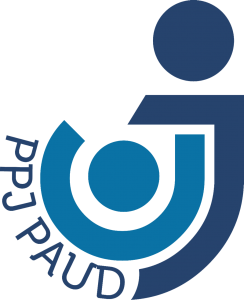The influence of self-efficacy and psychological well-being on the organizational commitment of 'Aisyiyah early childhood education teachers in the ex-Karesidenan Kedu
DOI:
https://doi.org/10.26555/jecce.v7i2.11528Abstract
The role of PAUD teachers is increasingly complex along with the dynamics of education. Teacher commitment is a key factor in facing these challenges. This research aims to analyze the influence of self-efficacy and psychological well-being towards the commitment of 'Aisyiyah PAUD teacher organization in Kedu Residency area. Quantitative research method by design correlational study used in this study. The research sample consisted of 253 non-ASN formal PAUD teachers selected by purposive sampling. Multiple linear regression analysis shows that self-efficacy and psychological well-being simultaneously have a significant influence (F=18.675, p<0.01) on the organizational commitment of PAUD 'Aisyiyah teachers, contributing 34.6%. Partially, psychological well-being demonstrated a significant effect of 30.95%. These findings indicate the importance of development self-efficacy and improving the psychological well-being of PAUD teachers to strengthen their commitment to carrying out their duties.
References
Aggarwal-Gupta, M., Vohra, N., & Bhatnagar, D. (2010). Perceived Organizational Support and Organizational Commitment: The Mediational Influence of Psychological Well-Being. Journal of Business & Management, 16(2). https://doi.org/10.6347/JBM.201007_16(2).0001
Aliakbari, M., & Amoli, F. A. (2016). The Effects of Teacher Empowerment on Teacher Commitment and Student Achievement. Mediterranean Journal of Social Sciences. https://doi.org/https://doi.org/10.5901/mjss.2016.v7n4p649
Allen, N. J., & Meyer, J. P. (1996). Affective, Continuance, and Normative Commitment to the Organization: An Examination of Construct Validity. Journal of Vocational Behavior, 49(3), 252–276. https://doi.org/https://doi.org/10.1006/jvbe.1996.0043
Altun, M. (2017). The Effects of Teacher Commitment on Student Achievement. International Journal of Social Sciences & Educational Studies, 3(3), 51. https://doi.org/http://dx.doi.org/10.6007/IJARBSS/v7-i11/3475
Asterina, R., & Hastjarjo, T. D. (2023). The Role of Transformational Leadership on Organizational Commitment Through the Mediation of Psychological Well-Being. Psychological Research and Intervention, 6(1), 1–6. https://doi.org/https://doi.org/10.21831/pri.v6i1.61753
Balesh, M. (2020). The Impact of Negative Affect On Psychological Well-Being Through Affective Commitment, Organizational Citizenship Behaviors, And Employee Burnout. Electronic Theses, Projects, and Dissertations, 1144. https://scholarworks.lib.csusb.edu/etd/1144
Bandura, A. (1997). Self-Efficacy: The Excercise of Control WH Freeman and Company.
Barata, J. (2020). Pengaruh Kecerdasan Emosional dan Kompensasi Terhadap Komitmen Organisasi Pegawai Sekolah Bina Bhakti Kubu. Jurnal Ekonomi Integra, 10(2), 272–303. https://doi.org/https://doi.org/10.1111/j.1464-0597.2007.00312.x
Cheng, G. H. ‐L., & Chan, D. K. ‐S. (2008). Who Suffers More from Job Insecurity? A Meta‐Analytic Review. Applied Psychology, 57(2), 272–303. https://doi.org/https://doi.org/10.1111/j.1464-0597.2007.00312.x
Chesnut, S. R., & Burley, H. (2015). Self-Efficacy as a Predictor of Commitment to the Teaching Profession: A Meta-Analysis. Educational Research Review, 15, 1–16. https://doi.org/https://doi.org/10.1016/j.edurev.2015.02.001
Chung, M.-S. (2019). Teacher Efficacy, Collective Self-Esteem, and Organizational Commitment of Childcare Teachers: A Moderated Mediation Model of Social Support. Frontiers in Psychology, 10. https://doi.org/https://doi.org/10.3389/fpsyg.2019.00955
Cioca, I., Wietrak, E., Barends, E., & Rousseau, D. (2021). Organisational Commitment: An Evidence Review.
Damanik, E. (2014). Principal Leadership Style and Its Impact on School Climate and Teacher Self-Efficacy in Indonesian Schools [Curtin University]. http://hdl.handle.net/20.500.11937/391
Demır, S. (2020). The Role of Self-Efficacy in Job Satisfaction, Organizational Commitment, Motivation and Job Involvement. Eurasian Journal of Educational Research, 20(85), 205–224. https://doi.org/https://dergipark.org.tr/en/pub/ejer/issue/52308/686061
Donaldson, S. I., Donaldson, S. I., Chan, L., & Kang, K. W. (2022). Positive Psychological Capital (PsyCap) Meets Multitrait-Multimethod Analysis: Is PsyCap a Robust Predictor of Well-Being and Performance Controlling for Self-Report Bias? International Journal of Applied Positive Psychology, 7(2), 191–205. https://doi.org/https://doi.org/10.1007/s41042-021-00060-0
El Kalai, I., Kirmi, B., & Lhassan, I. A. (2022). Investigating the Effect of Teacher Commitment on Student Academic: The Case of Moroccan High Schools in Tangier. International Journal of Research in Business and Social Science (2147-4478), 10, 350–363. https://doi.org/https://doi.org/10.20525/ijrbs.v10i8.1507
Fabbro, A., Fabbro, F., Capurso, V., D’Antoni, F., & Crescentini, C. (2020). Effects of Mindfulness Training on School Teachers’ Self-Reported Personality Traits As Well As Stress and Burnout Levels. Perceptual and Motor Skills, 127(3), 515–532.
Hameli, K., & Ordun, G. (2022). The Mediating Role of Self-Efficacy in The Relationship Between Emotional Intelligence and Organizational Commitment. European Journal of Management Studies, 27(1), 75–97.
Heidari, M., HoseinPour, M. A., Ardebili, M., & Yoosefee, S. (2022). The Association of the Spiritual Health and Psychological Well-Being of Teachers With Their Organizational Commitment. BMC Psychology, 10(1), 55. https://doi.org/https://doi.org/10.1186/s40359-022-00768-x
Herscovitch, L., & Meyer, J. P. (2022). Commitment to Organizational Change: Extension of A Three-Component Model. Journal of Applied Psychology, 87(3), 474. https://doi.org/10.1037/0021-9010.87.3.474
Im, K. P., Hutagalung, F. D., & Peng, C. F. (2021). Interrelationships Between Emotional Competence and Self-Efficacy with Commitment Among Preschool Teacher in Selangor. International Journal of Advanced Research in Education and Society, 3(3), 171–180.
Jain, P., Duggal, T., & Ansari, A. H. (2019). Examining the Mediating Effect of Trust and Psychological Well-Being on Transformational Leadership and Organizational Commitment. Benchmarking: An International Journal, 26(4), 1517–1532. https://doi.org/https://doi.org/10.1108/BIJ-07-2018-0191
Jot, J., Sethi, U. J., & Lehal, R. (2023). Psychological Well-Being and Organizational Commitment: A Relationship Among Socio-Demographic Variables. Eur. Chem. Bull., 12(10), 2579–2592.
Kodden, B. (2020). The Impact of Self-Efficacy. The Art of Sustainable Performance: A Model for Recruiting, Selection, and Professional Development, 31–38. https://doi.org/https://doi.org/10.1007/978-3-030-46463-9_5
Koh, H. K., Blakey, C., & Ochiai, E. (2021). Flourishing After a Pandemic: Healthy People 2030. Journal of Public Health Management and Practice, 27(6), S215–S217.
Koswara, D., Hardhienata, S., & Retnowati, R. (2021). Increasing Teacher`s Organizational Commitment Through Strengthening Teamwork, Situational Leadership and Self-Efficacy. Journal of Industrial Engineering & Management Research, 2(4), 228–238. https://doi.org/https://doi.org/10.7777/jiemar.v2i4.179
Kozikoğlu, İ. (2016). Analyzing the Relationship Between Teachers’self-Efficacy Perceptions and Their Professional Commitment Levels. European Journal of Education Studies. https://doi.org/http://dx.doi.org/10.46827/ejes.v0i0.244
Lee, M., & Kim, B. (2023). Effect of the Employees’ Mental Toughness on Organizational Commitment and Job Satisfaction: Mediating Psychological Well-Being. Administrative Sciences, 13(5), 133. https://doi.org/https://doi.org/10.3390/admsci13050133
Liu, E. (2019). Occupational Self-Efficacy, Organizational Commitment, and Work Engagement. Social Behavior and Personality: An International Journal, 47(8), 1–7. https://doi.org/https://doi.org/10.2224/sbp.8046
Ma, D. (2022). The Role of Motivation and Commitment in Teachers’ Professional Identity. Frontiers in Psychology, 13. https://doi.org/https://doi.org/10.3389/fpsyg.2022.910747
McInerney, D. M., Ganotice, F. A., King, R. B., Morin, A. J., & Marsh, H. W. (2015). Teachers’ Commitment and Psychological Well-Being: Implications of Self-Beliefs for Teaching in Hong Kong. Educational Psychology, 35(8), 926–945. https://doi.org/10.1080/01443410.2014.895801
Meyer, J. P., & Allen, N. J. (1991). A Three-Component Conceptualization of Organizational Commitment. Human Resource Management Review, 1(1), 61–89. https://doi.org/https://doi.org/10.1016/1053-4822(91)90011-Z
Meyer, J. P., Allen, N. J., & Smith, C. A. (1993). Commitment to Organizations and Occupations: Extension and Test of a Three-Component Conceptualization. Journal of Applied Psychology, 78(4), 538–551. https://doi.org/https://doi.org/10.1037/0021-9010.78.4.538
Min, H.-Y., Cho, S.-J., & Moon, S.-B. (2008). The Influence of the Self-Efficacy and the Social Support on the Organizational Commitment of Kindergarten and Child Care Teachers. Journal of Families and Better Life, 26(2), 25–32.
Mokhtar, A., Maouloud, V. M., Omowunmi, A. K., & Nordin, M. S. bin. (2021). Teachers’ Commitment, Self-Efficacy and Job Satisfaction as Communicated by Trained Teachers. Management in Education. https://doi.org/https://doi.org/10.1177/08920206211019400
Murniarti, E., Simbolon, B., & Zaratyka, G. (2021). Self Effication and Psychological Welfare Towards Teacher’s Organization Commitments. https://doi.org/https://doi.org/10.2991/assehr.k.210615.008
Murphy, D. P. (2013). An Examination Into the Relationship Between Teacher Efficacy and Organizational Commitment of Special Education Teachers. In Education Doctoral Theses: Vol. Paper 128. http://hdl.handle.net/2047/d20003341
Norawati, S., & Anantatur, M. (2022). Teacher’s Commitment, Work Discipline and Its Effect on the Teachers Performance at Senior High Schools. Journal of Positive School Psychology, 1557–1568.
Normianti, H., Aslamiah, A., & Suhaimi, S. (2019). Relationship of Transformational Leaders of Principal, Teacher Motivation, Teacher Organization Commitments With Performance of Primary School Teachers in Labuan Amas Selatan, Indonesia. European Journal of Education Studies.
Onyemah, T. N., Raji, N. A., Sylvester, A. O., & Adewuyi, H. O. (2024). Enhancing Teaching Productivity Among University Staffers: The Influence of Organizational Commitment and Workload. Journal of General Education and Humanities, 3(1), 37–46. https://doi.org/https://orcid.org/0000-0002-4093-9157
Putri, A. D., & Prasetio, A. P. (2018). Pengaruh Kompensasi terhadap Komitmen Karyawan di Departemen Pemasaran Divisi Ethical Reguler PT. Pharos Indonesia. Jurnal Manajemen Dan Bisnis (Performa), 15(1), 1–9.
Rahmawati, A., & Herachwati, N. (2024). The Effect of Psychological Wellbeing and Employee Integrity on Organizational Commitment by Mediating Organizational Change in Employees BNI Surabaya Commercial Business Center. Daengku: Journal of Humanities and Social Sciences Innovation, 4(2), 26–40. https://doi.org/https://doi.org/10.35877/454RI.daengku2246
Ryff, C. D. (1995). Psychological Well-Being in Adult Life. Current Directions in Psychological Science, 4(4), 99–104. https://doi.org/https://doi.org/10.1111/1467-8721.ep10772395
Ryff, C. D., & Keyes, C. L. M. (1995). The Structure of Psychological Well-Being Revisited. Journal of Personality and Social Psychology, 69(4). https://doi.org/https://doi.org/10.1037/0022-3514.69.4.719
Ryff, C. D., & Singer, B. H. (2006). Best News Yet on the Six-Factor Model of Well-Being. Social Science Research, 35(4), 1103–1119. https://doi.org/https://doi.org/10.1016/j.ssresearch.2006.01.002
Salimirad, F., & Srimathi, N. L. (2016). The Relationship between Psychological Well-being and Organizational Commitment among the Teachers in the City of Mysore. International Journal of Psychology and Psychiatry, 4(1). https://doi.org/https://doi.org/10.5958/2320-6233.2016.00003.1
Sandilya, G., & Shahnawaz, G. (2018). Index of Psychological Well-being at Work—Validation of Tool in the Indian Organizational Context. Vision: The Journal of Business Perspective, 22(2), 174–184. https://doi.org/https://doi.org/10.1177/0972262918766134
Schwarzer, R., & Jerusalem, M. (1995). Generalized Self-Efficacy Scale. J. Weinman, S. Wright, & M. Johnston, Measures in Health Psychology: A User’s Portfolio. Causal and Control Beliefs, 35. https://doi.org/https://doi.org/10.1037/t00393-000
Schwarzer, R., Mueller, J., & Greenglass, E. (1999). Assessment of Perceived General Self-Efficacy on The Internet: Data Collection in Cyberspace. Anxiety, Stress and Coping, 12(2), 145–161.
Setyaningsih, S., & Sunaryo, W. (2021). Optimizing Transformational Leadership Strengthening, Self Efficacy, and Job Satisfaction to Increase Teacher Commitment. International Journal of Instruction, 14(4), 427–438. https://doi.org/https://doi.org/10.29333/iji.2021.14425a
Sihotang, H. (2017). Hubungan Kompensasi Dan Budaya Organisasi Dengan Komitmen Organisasi Guru Di Yayasan Pendidikan Eka Wijaya Bogor. Jurnal Manajemen Pendidikan, 6(1), 47–61.
Syabarrudin, A., Eliyana, A., & Naimah, J. (2020). Does Employees’ Self-Efficacy Drive Their Organizational Commitment? Systematic Reviews in Pharmacy, 11(4). https://doi.org/https://doi.org/10.31838/srp.2020.4.21
Uwaleke, G. C., Sani, Y., & Mildred, J. C. (2023). Teacher Commitment and Students’ Academic Achievement in Nasarawa State Secondary Schools, Nigeria. African Scholars Journal of Education Research and Library Practice, 28(8), 105–118.
Waweru, N. M., Kihoro, P. J. M., & Gachunga, P. H. G. (2021). Does Teachers’ Self-Efficacy Influence Their Organizational Commitment? Independent Journal of Management & Production, 12(5), 1537–1553. https://doi.org/https://doi.org/10.14807/ijmp.v12i5.1357
Yalçın, S., Akan, D., & Yıldırım, İ. (2021). Investigation of the Organizational Commitment and Psychological Wellbeing Levels of Academicians. International Journal of Research in Education and Science (IJRES), 7(2).
Yin, H., Tam, W. W. Y., & Lau, E. (2023). Happy Teachers are Efficacious and Committed, But Not Vice Versa: Unraveling The Longitudinal Relationships Between Hong Kong Kindergarten Teachers’ Psychological Well-Being, Self-Efficacy, and Commitment. Teaching and Teacher Education, 123. https://doi.org/https://doi.org/10.1016/j.tate.2022.103997
Zarate, K., Maggin, D. M., & Passmore, A. (2019). Meta‐Analysis of Mindfulness Training on Teacher Well‐Being. Psychology in the Schools, 56(10), 1700–1715.
Zee, M., & Koomen, H. M. Y. (2016). Teacher Self-Efficacy and Its Effects on Classroom Processes, Student Academic Adjustment, and Teacher Well-Being. Review of Educational Research, 86(4), 981–1015. https://doi.org/https://doi.org/10.3102/0034654315626801
Downloads
Published
How to Cite
Issue
Section
License
Copyright (c) 2024 Hamas Bernadian, Alif Mu'arifah

This work is licensed under a Creative Commons Attribution-ShareAlike 4.0 International License.
Authors who publish with this journal agree to the following terms:
- Authors retain copyright and grant the journal right of first publication with the work simultaneously licensed under a Creative Commons Attribution-ShareAlike 4.0 International License that allows others to share the work with an acknowledgement of the works authorship and initial publication in this journal.
- Authors are able to enter into separate, additional contractual arrangements for the non-exclusive distribution of the journals published version of the work (e.g., post it to an institutional repository or publish it in a book), with an acknowledgement of its initial publication in this journal.
- Authors are permitted and encouraged to post their work online (e.g., in institutional repositories or on their website) prior to and during the submission process, as it can lead to productive exchanges, as well as earlier and greater citation of published work (See The Effect of Open Access).














